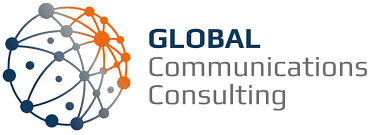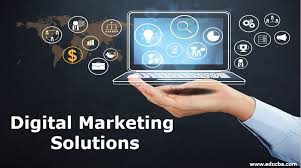Empowering Your Brand: The Impact of Communications Consultants in Today’s Business Landscape
The Role of Communications Consultants in Today’s Business World
Communications consultants play a vital role in helping businesses navigate the complex landscape of modern communication. With the rise of digital media and the increasing importance of brand reputation, organisations are turning to communications experts for guidance and support.
One key aspect of a communications consultant’s role is to develop and implement strategic communication plans that align with the company’s objectives. This involves crafting messages that resonate with the target audience, selecting appropriate channels for distribution, and monitoring the impact of communication efforts.
Effective communication is essential for building brand awareness, managing crises, engaging stakeholders, and ultimately driving business growth. Communications consultants bring a wealth of experience and expertise to help businesses achieve their communication goals.
In addition to strategic planning, communications consultants also provide valuable insights on industry trends, competitor analysis, and best practices. They work closely with clients to understand their unique challenges and develop customised solutions that address specific needs.
Furthermore, communications consultants often act as liaisons between businesses and the media. They help companies craft compelling stories, handle press inquiries, and manage public relations campaigns to enhance brand visibility and reputation.
Overall, communications consultants play a crucial role in shaping how businesses communicate with their audiences. By leveraging their knowledge and skills, organisations can effectively convey their messages, build strong relationships with stakeholders, and achieve long-term success in today’s competitive business environment.
Understanding the Role and Benefits of Communications Consultants: Key Questions Answered
- What services do communications consultants offer?
- How can communications consultants help improve my company’s brand reputation?
- What qualifications and experience should I look for in a communications consultant?
- How do communications consultants develop communication strategies tailored to my business goals?
- What is the typical process of working with a communications consultant?
What services do communications consultants offer?
Communications consultants offer a wide range of services to help businesses effectively manage their communication needs. These services typically include strategic communication planning, media relations, crisis communication management, content creation, social media strategy, brand positioning, stakeholder engagement, and reputation management. By leveraging their expertise and experience, communications consultants tailor their services to meet the specific goals and challenges of each client. Whether it’s enhancing brand visibility, improving internal communication processes, or navigating complex public relations issues, communications consultants play a crucial role in shaping how businesses connect with their audiences and achieve their communication objectives.
How can communications consultants help improve my company’s brand reputation?
Communications consultants can significantly impact your company’s brand reputation by developing and implementing strategic communication strategies tailored to enhance positive perceptions among your target audience. They possess the expertise to craft compelling messages that align with your brand values and resonate with stakeholders. By effectively managing media relations, crisis communication, and content creation, communications consultants can help build trust, credibility, and goodwill for your company. Their insights into industry trends and best practices enable them to identify opportunities for brand enhancement and navigate challenges that may arise. Ultimately, communications consultants play a key role in shaping a strong and favourable brand reputation that differentiates your company in the competitive market landscape.
What qualifications and experience should I look for in a communications consultant?
When considering what qualifications and experience to look for in a communications consultant, it is essential to seek individuals with a strong educational background in communication, public relations, marketing, or a related field. Look for consultants who hold relevant qualifications such as a degree or certification in communications. Additionally, experience plays a crucial role in evaluating a consultant’s expertise. Seek professionals with a proven track record of successful communication campaigns, crisis management skills, media relations experience, and a deep understanding of various communication channels. The ideal communications consultant should possess excellent interpersonal skills, creativity, strategic thinking abilities, and the capacity to adapt to evolving industry trends. By prioritising qualifications and experience when selecting a communications consultant, you can ensure that you are partnering with a knowledgeable and skilled professional who can effectively meet your communication needs.
How do communications consultants develop communication strategies tailored to my business goals?
Communications consultants develop communication strategies tailored to your business goals through a comprehensive and collaborative process. They begin by gaining a deep understanding of your company’s objectives, target audience, industry landscape, and competitive positioning. By conducting thorough research and analysis, communications consultants identify key messaging points, communication channels, and tactics that align with your specific needs. They work closely with you to define clear objectives, establish measurable goals, and create a roadmap for implementing the strategy effectively. Through continuous evaluation and refinement, communications consultants ensure that the communication plan remains aligned with your evolving business goals and delivers the desired outcomes.
What is the typical process of working with a communications consultant?
When working with a communications consultant, the typical process involves several key steps to ensure effective collaboration and successful outcomes. Initially, the consultant will conduct a thorough assessment of the client’s communication needs, goals, and challenges. This may include reviewing existing communication strategies, analysing target audiences, and identifying areas for improvement. Based on this evaluation, the consultant will develop a tailored communication plan that outlines objectives, messaging strategies, and recommended tactics. Throughout the engagement, the consultant will work closely with the client to implement the plan, monitor progress, and make adjustments as needed. Regular communication and feedback sessions are essential to maintain alignment and achieve desired results. Ultimately, working with a communications consultant involves a strategic partnership aimed at enhancing brand reputation, engaging stakeholders, and driving business success through effective communication strategies.












